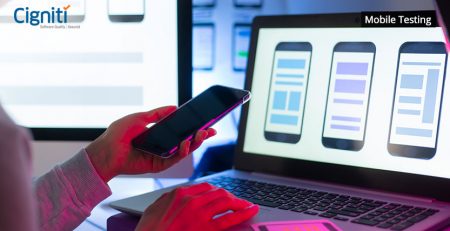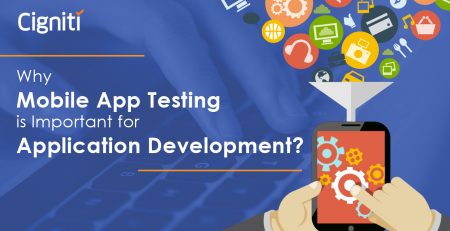8 Key Challenges & Solutions of Mobile Application Testing
Today, millions of mobile users are dependent on their mobiles – more so on their mobile apps to conduct and browse internet for social networking or for other purposes. The increased usage and rapid development of mobile apps is a clear indicator for the need to test them thoroughly before releasing them to the market. With end user getting more critical of user experience and performance, it is a must to address certain mobile app testing challenges.
Major Roadblocks While Testing Mobile Apps
Listed below are a set of most common roadblocks & workarounds while testing mobile applications:
User Experience & Issues with App Performance
It is a broad truth that success of a mobile app is significantly dependent on great experience that provides an innovative, contextually appropriate and pre-defined user interface. It is such truth that any delay longer than a second might also interrupt user performance and simultaneously have an impact on their preferences. Thus, mobile applications that are free of faults and errors provide a better user experience which has a direct impact on the business sources of the application. Moreover, user grades the quality of the mobile application mainly based on their user experience. Unfortunately, many new users choose applications based on previous reviews and grades. Therefore, old errors and faults, or a poor user experience in an otherwise working application can undoubtedly lead to the business failure of the application.
Touch Screen
It is also a major source of user interaction today and these touch screens enable the display and input of data. The signals or the signs which form an indication in the process of data input also cause a challenge in the testing process wherein the testing of touch screens needs to be more intricate and stable.
Context Awareness
It is a long pending challenge in mobile application testing, which demands new methods and innovative testing approaches. Context can limit or extend the operation of mobile applications or its functionalities with data from the environment in which it is in. Mobile applications can be in different contexts with different data which obviously creates a unique challenge in the entire testing process. In addition the nature of smart phones denotes constantly changing environments and usage patterns that impact context.
Lesser Time to Market the App
The impossibly strict timelines declared might also cause a lot impact on the testing of mobile app as it needs proper requirements, design, development and finally testing. Various mobile development stages are closely linked and testing needs to be followed up. Users demand shorter delivery time of even less than 20 days for a mobile app which ties up the process of testing. Ample timelines need be framed for effective testing and later release.
Security Issues
Apps and devices managed via private cloud are much more secure rather than apps running in a public cloud. A secure private cloud can provide all the access to testing teams and there would be no data breaches whatsoever.
Variations of Mobile User Interfaces
Different mobile operating systems like Android, Windows etc. have different user interfaces, in turn guided by specific rules and guidelines. The usage and layout of elements is checked in the verification process when publishing the mobile applications in the markets. Non-compliance with rules and guidelines can delay the publishing process; in turn impacting increase in the cost of development and testing.
Lack of Access to Multiple Devices
At times, it may be possible that two or more testers might need the same device at the same time, wherein one tester is left out waiting until the other tester completes their work. In case of procuring multiple devices involves cost incurring, which could also involve additional time. Moreover, it would be more a problem if testers are placed across continents.
Device Based Testing Approach
Under the device based approach, there should be a testing laboratory set up which also involves purchase of real time mobile devices. It seems to be more costly than the emulation method as it takes care of verification of device based functions, and other QoS parameters. But, this method has to cope with the rapid changes in the ever changing mobile devices and platforms.
Cigniti has a number of satisfied clients with over a decade of our expertise in ensuring best of mobile apps. In addition, our global testing team uses a centrally managed pool of devices for testing mobile apps via a secure cloud. A proper, structured & specific Mobile Testing strategy is always followed in an effective way by Cigniti Technologies making it your best partner.






Leave a Reply